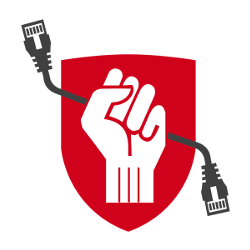This is a collection of ideas relating to the theme of our April 2018 event – Defending Truth. These are worthwhile projects for any Hack!
Limited or no software development / tech skill required
- Highlight instances of privacy zuckering and shame the perpetrators of this and/or other types of dark pattern. Follow the lead of the hall of shame page that already exists, but amplify the message! This could focus on Facebook or other Big Tech perpetrators. It could use their own medium, e.g. a hall of shame of Facebook’s transgressions as a Facebook Page. (Talk to Robin)
- A camera or microphone patch for phones (something easy to use). (Talk to Pam)
- Technology is political, as the Cambridge Analytica scandal has amply demonstrated. What can we do to bring more technologists or tech companies into the privacy movement or to encourage more consideration of ethics in their decision making? (Talk to Robin)
- Many problems that privacy advocates rile against cannot be solved simply with technology. In a lot of cases a political or legislative push is required. How can we, using technology or otherwise, help with that push? (Talk to Robin)
- Can we help to support a campaign against the government’s proposed mandatory decryption “war on maths” laws? (Talk to Monique)
- Communication of the importance of privacy, and about privacy and data in general, is very hard. There are still too many people who think that because they have nothing to hide, they have nothing to fear. There are too many people who fall for the national security argument for removing their rights. There are too many people who think they are in control of their data (particularly as Facebook pushes this line in its responses to the Cambridge Analytica scandal). How can we communicate better and increase understanding of our cause among the general public? Can we publish a guide (for techies?) to help them communicate about the issue? (Talk to Robin)
Tech skills optional
- IsCentrelinkDown is a tool that checks the availability of Centrelink phone lines. It was created to debunk the claims of availability that are frequently made by the Department of Human Services. The source code has been opened up just in time for the Hack! This tool could be extended, or we could build a totally new tool to debunk other false claims, or to answer questions like “how long does it take to get hold of someone at the ATO?”
- GDPR requires corporations to publish a list of who they share data with. We could harvest and visualise this data, to try to uncover some of the data dealing that’s going on.
Tech and non-tech skills required
- Collate instructions or links describing how you can delete or limit your data on datenkraken (social networks and other big data collectors). (Talk to Pam)
- Visualise where the noise in Twitter for a specific topic is coming from (geographically or demographically).
- Something like securemessagingapps.com but for VPNs, or for other privacy tools. Or improve existing projects like privacytools.io or cybersecureyourself.net. (Talk to Pam)
- A video-, text-, board-, or card game to teach basic cyber security to victimised demographics (e.g. elderly, children, or domestic abuse victims).
Mostly tech skills required
- Harvest social media posts containing the word “fact” (or otherwise determine that posts contain a claim of fact) and put them on a stackexchange-style website where people can research and confirm or reject them (citing sources). (Talk to Robin)
- Extension 1: a browser add-on that automatically augments each “fact” post with a green/amber/red traffic light score of fact-trustworthiness (based on the responses on the stackexchange site) for a given fact as it’s displayed on the feed. This button could also serve as a way to request verification of the fact, i.e. clicking on the button could upvote it on the stackexchange.
- Extension 2: an aggregate/average trustworthiness score for the poster, considering the rating of all their “fact” posts
- Determine your advertising profile based on a limited set of data like your Facebook likes, or Google Maps locations visited, to demonstrate the power of aggregation. Single data points say little but many data points reveal a more. (Talk to Robin)
- Find and highlight “interesting” data in a download of your Facebook data or Google Takeout data. (Talk to Pam)
- Create a virtual or physical space where activists can work from a secure server with the software required to do their work. It could include access to nextcloud with collabora or cryptpad. It could look similar to disroot.org but with a more local user base, where activists can come together and collaborate on work they do. (Talk to Leonardo)
